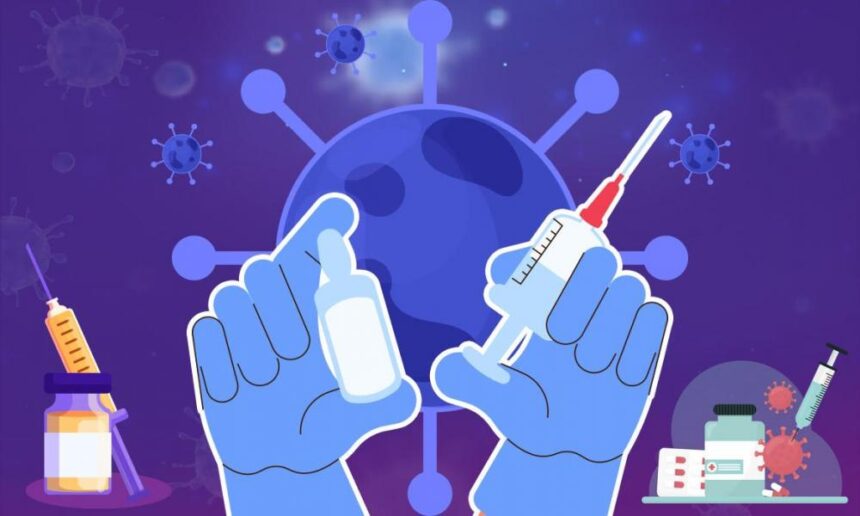To date, 36 million people have been infected and more than a million people have died since the outbreak of COVID-19. This catastrophic pandemic has led to an economic crisis that has pushed millions to the brink of poverty. Every country is prioritizing the protection of their citizens’ health.
Vaccination is the only effective way mankind has come up with to protect against dangerous viral infections. After a vaccine is given, the human immune system is activated and begins to produce antibodies. The blend of virus and the antibodies is engulfed and destroyed by large cells (macrophages) that protect the human body from infections. The remaining antibodies recognize the virus when it enters the system next time.
It takes 1-1.5 years for a vaccine against a new virus to be given to people. The vaccine is first developed in the laboratories of developed countries, then, it is tested and certified. Subsequently, the production of the WHO-approved vaccines begins. Finally, the vaccine is safely supplied and administered.
Anti-vaccination tendency
A US dollar spent on immunization has benefits worth 44 US dollars for the society and the economy. Despite this, anti-vaccination groups and movements persist in many countries. They oppose vaccinations, claiming that it causes diseases such as allergies and autism, and that humans should have natural immunity. However, scientists have proven that these arguments are invalid.
Organized opponents of the practice of vaccination exist not only in poor countries, but also in countries with high levels of economic development and quality education. Vaccination hesitancy is one of the major challenges that the public health sector faces. With the decline in the vaccination rates, the prevalence of infectious diseases surges. Each year, vaccines save the lives of 3 million people.
Accessibility
The process of vaccine development can be very costly, from research to production. Therefore, public accessibility and inclusion are difficult challenges for vaccination efforts in less developed countries. The United Nations Children’s Fund (UNICEF) has been playing a crucial role in supplying vaccines to Mongolia.
UNICEF provides assistance to 190 countries around the world in the protection of children’s rights, development, health, nutrition and immunization. It is also the world’s largest buyer of vaccines. Every year, more than two billion doses of vaccines are purchased for more than 100 countries to conduct scheduled immunizations and fight against some infectious diseases.
Due to the cold climate in our country, three quarters of the year is the flu season. Mongolia receives the vaccine at a discounted price through UNICEF. For example, a vaccine that costs more than $100 can be purchased for about $10. Despite the price reduction, delivering to everyone is expensive, costing at least $20.
We are not a vaccine producer but a vaccine buyer. Therefore, careful consideration is needed to acquire healthy, safe, and high-quality vaccines to immunize our citizens. There is a specific ‘Law on Immunization (2000)’ that regulates this procedure. According to this law, Mongolia can only order WHO-certified vaccines from the United Nations Children’s Fund at a relatively low cost. The government provides the budget for the vaccination of all children aged 0-15.
Vaccine for the coronavirus
In many parts of the world, research institutes and vaccine manufacturers are competing for the development of a vaccine against the coronavirus infection. The production of a number of vaccines will help to reduce prices. For example, our northern neighbor has already announced the launch of the ‘Sputnik-5’ vaccine and some countries started buying it. China is also developing and testing a vaccine. In the United States, it is being discussed whether to approve some of the vaccines that are currently being tested before the presidential election.
We are currently working with international organizations such as UNICEF and the World Health Organization to prioritize the immunization of at-risk populations. At-risk groups include the chronically ill, pregnant women, children, the elderly over 60, and front-line health workers.
Infectious diseases concern public health and safety, not just one person. Therefore, it is the duty of every citizen to be immunized in times of infectious disease epidemics.
2020.10.08
Trans. by Riya.T and Munkh-Erdene.D












